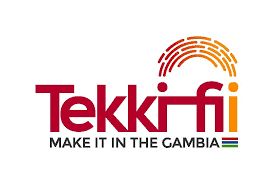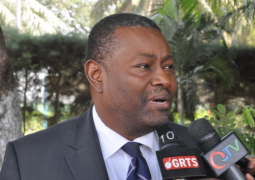
The EU funded project was implemented in LRR, URR and GBA. It provided skills training programmes; career guidance and counseling, grants or start-up kits, solar powered irrigation systems as well as creating employment opportunities among others for young people.
Speaking at the closing ceremony on Tuesday 12 October, 2021 at the OIC Conference Center, EU Ambassador to The Gambia, Carrado Pampaloni, said the programme has been successful in aligning itself to the country’s major socio economic priorities.
“Looking at the project achievements we are proud to note that over 4800 youths completed the skill or business training programme in 17 market relevant trade areas and or benefitted from grants and start- up kits to develop or expand their business,” he explained.
According to him, the project is not just numbers or targets, the core aim is to support youth especially those who are not in employment, education or training to find their place in the society and to ensure their own livelihood.
Mod Secka, permanent secretary, Ministry of Higher Education, Research, Science and Technology, said the youths have greatly benefitted from the Tekki Fii project.
“We have seen how the acquisition of technical skills, combined with entrepreneurship training and the provision of much needed toolkits constitutes a precious formula that not only raises the level of employability of the youths, but also accelerates their entry into the labour market,” he noted.
He added that they are appreciative of the EU and GIZ investments in the rural areas of the country such as LRR and URR, “where new centers were opened and old ones revived and expanded; where access to TVET has improved significantly but also where quality standards, responding to the demanding requirements of the labour market have been shared with local institutions and are currently being applied.”
Alagie Jarju, executive director, National Youth Council, said they had always advocated for the provision of skill centers in the regions which the project has addressed by providing such opportunities. “Young people are now living in their communities and learning skills that they want. Initially, they would run down to Banjul or Kombo and where you do not have a guardian, the tendency is the opportunity does not exist for you.”
Ulrike Ebeling, GIZ regional director, thanked the European Union for having entrusted them with the implementation of the project. She further showed gratitude to all the government ministries, departments, institutions and their implementing partners for their commitment and support towards the success of the project.
She said the young women and men who have graduated from the numerous programmes they rolled out have all validated the Tekki Fii principle, affirming that it is possible to make it here in The Gambia without having to take the ‘backway’.
Ulrike said they did not only reach their finishing line but even exceeded the indicators they initially set.
Fatoumatta Trawally, project beneficiary who did solar and electrical installation, said they did a lot of trainings during the course that really helped them. According to her, they have now started a cooperative society business which is focused on four types of skill: solar, electrical, plumbing and satellite. She thanked EU and GIZ for the support.





